Iceland’s Population Condemns Tourist Whale Consumption
Pressrelease in English and German
Iceland’s Population is Condemning the Consumption of Whale Meat by Tourist
Radolfzell/Reykjavik - September 10th 2012. - Bloodthirsty and insisting on their traditions - this is how the public envisioned the Icelandic people for many decades, when hearing news about the whale hunts in the Atlantic Ocean of this island-state. A lot has changed since then and the reality looks quite different today.
The German dolphin- and whale-protection organization Prowal visited Iceland for the second time this year and had astounding insights.
Andreas Morlokof ProWal had this to report:”We had conversations with quite a few locals as well as business people. Almost all of them are now against the whale hunt in their own country. Slaughtering whales is to them a thorn in their sides, and only a few whaling outfits and some supermarket chains and a dozen or so restaurants profit by the hunt. But everybody has to bear the shame and the loss of image and some companies are even afraid that they will go under if the whale hunt is being continued. The consumption of whale meat by the people of Iceland has gone down for years. There remain only a few Icelanders, who still eat whale meat, but they will only do so a few times during the year. Tourists are the ones that consume the lion share of the minke whale meat. Many Icelanders condemn this and even loudly complain about this fact. A company that conducts whale watching tours in Reykjavik is rather upset about the interest of many tourists to try whale meat once in their lifetime. If tourist would abstain from this obsession, the market for whale meat would collapse within a short period of time.”
Minke and fin whales are being hunted in Iceland. Fin whales, this species is listed as endangered, are caught only for export to Japan. This year, however, the Japanese did not order any fin whale meat, because they are sitting on a mountain of several thousand tons of whale meat, for which there is no market and on top of that there is no money for buying more after the tsunami catastrophe. The two whaling vessels owned by the company “Hvlur” are anchored in the harbor of Reykjavik at the moment and are being kept at the ready. The company is hoping for orders from Japan. Minke whales are exclusively hunted for the home market. While there is little whale meat to be found in some supermarkets, the restaurants in Reykjavik are lined up and offer the meat of minke whales raw as sushi or grilled as whale steak.
Andreas Morlok:” A few days ago the situation in Reykjavik was totally absurd. The hunting season for minke whales was starting around the coast of Iceland. While the tourists on the whale watching boats could not observe any big whales around the harbor of Reykjavik - only a few dolphins were observed – which was rather disappointing for the tourist, a few kilometers further out a whaling company was slaughtering minke whales. The whaling boat "Hafsteinn", which is normally anchored in the harbor of Hafnafjoerdur, could not be observed there for days. Several whale-watching outfits are now afraid that they will lose their customers and should the tourist continue to eat even more whale meat, they are afraid for their existence if they cannot show any more living whales swimming free in the ocean to their guests on board."
ProWal has no knowledge of any Barbarians of the North, who bloodthirstily slaughter whales simply for tradition's sake, and would even go to task for the Icelanders.
Andreas Morlok: Nowadays, the Icelanders are a very dolphin- and whale-friendly people. There are several research projects going on that are conducted in cooperation by foreign and locale scientist. Everything that can be found out about the 26 dolphin species, that live in the Icelandic waters, is being investigated by non-lethal methods. Large vessels that are conducting this scientific research about whales and dolphins are anchored in the harbor of Reykjavik or along the coast.
At the end of July a huge pod of pilot whales, about 200-300 animals strong, was feared to beach themselves at the town of Akranes. People were afraid that all these animals would die, since the leading animal had beached itself already. Many Icelanders from the shore as well as from boats immediately participated in an emergency action to save the animals and the people were successful to herd the animals back out to sea. All the animals could be saved and people were extremely happy about this fact."
ProWal started an educational campaign, which will be renewed every year. The members of this new founded organization will distribute informatory pamphlets to tourist.
Monika Laubach of ProWal had this to add:" Most of the tourists do not even realize what kind of a poison-cocktail they ingest by eating whale meat. The whales collect in their system high concentrations of PCB's, cadmium, pesticides as for instance Dieldrin and other chemicals during the course of their lives. Whale meat has 100 times higher concentrations of such poisons than other fish. The International Whaling Commission (IWC) as well the World Health Organization (WHO) are warning against the consume of whale products, since the normal limits are greatly exceeded. The consequences of eating whale meat can be horrendous. Severe learning disabilities, loss of memory, weakening of the immune system, disruptions of the motional and central nervous system, heightened risk of getting Parkinson's Disease, arteriosclerosis, high blood pressure, heightened risk for insulin deficiency and diabetes in the elderly. Furthermore, the semen quality in men is markedly reduced by PCB's and methyl-mercury. PCB's and DDT's are furthermore known to be carcinogens. It is not strange, why even Japan shows no interest in buying any of this poisonous cocktail from Iceland and has not imported any of the minke whale meat. Why the Icelandic government does not protect their guests and their own people from these poisons and does not even warn them about what consequences the consumption of whale meat can have, is absolutely incredible. It is the assumption that the current government is trying to keep a trump card in their deck as a means to pressure their acceptance into the EU, where the whale hunt is prohibited. It appears that there are no other justifiable reasons to continue the whale hunt in Iceland and it will only hurt the Icelanders more than it will profit them."
--------------
Internet: www.walschutzaktionen.de
--------------
German:
Isländer
verurteilen Walfleischkonsum der
Touristen
Radolfzell/Reykjavik –
10.09.2012 – Blutrünstig und auf eine alte
Tradition pochend, so hat die Öffentlichkeit die Isländer
viele Jahrzehnte wahrgenommen, wenn über den Walfang des
Inselstaates im Atlantik berichtet wurde. Vieles hat sich
geändert und die Wirklichkeit sieht heute ganz anders
aus.
Die deutsche Delfin- und Walschutzorganisation ProWal besuchte dieses Jahr zum zweiten Mal Island und kam zu erstaunlichen Erkenntnissen.
Andreas Morlok von ProWal: „Wir haben uns mit vielen Einheimischen und Geschäftsleuten unterhalten. Fast alle lehnen den heutigen Walfang in ihrem eigenen Land ab. Das Abschlachten der Wale ist ihnen gar ein Dorn im Auge, denn nur wenige Walfangunternehmen, einige Supermarktketten und ein paar Dutzend Restaurants profitieren von ihm. Den Imageschaden durch den Walfang hingegen haben alle zu tragen und einige Firmen fürchten gar um ihre Existenz, wenn der Walfang fortgesetzt wird. Der Konsum von Walfleisch ist bei den Isländern selbst schon seit Jahren rückläufig. Nur noch wenige Isländer essen überhaupt noch Walfleisch. Den Hauptteil des Fleisches der Zwergwale essen Touristen. Viele Isländer verurteilen dies und schimpfen gar lautstark darüber. Eine Firma, die Walbeobachtungstouren in der isländischen Hauptstadt Reykjavik anbietet, ist ziemlich erbost über das Interesse vieler Touristen, einmal in ihrem Leben Walfleisch auszuprobieren. Würden die Touristen kein Walfleisch mehr essen, der Markt dafür würde wohl innerhalb kürzester Zeit zusammenbrechen.“
In Island werden Zwerg- und Finnwale gejagt. Finnwale, deren Art als bedroht eingestuft ist, werden nur für den Export nach Japan gefangen. Dieses Jahr bestellten die Japaner jedoch kein Finnwalfleisch, weil sie selbst auf einem Berg von mehreren Tausend Tonnen tiefgekühltem Walfleisch sitzen, für den es kaum Abnehmer gibt und sie auch nach der Tsunami-Katastrophe kein Geld für weitere Zukäufe haben. Die beiden Walfangschiffe des Unternehmens „Hvlur“ liegen im Moment im Hafen von Reykjavik und werden betriebsbereit gehalten. Das Walfangunternehmen hofft auf zukünftige Bestellungen aus Japan. Zwergwale hingegen werden in Island ausschließlich für den heimischen Markt gejagt. Während in manchen Supermarktregalen nur wenig Walfleisch zu finden ist, reihen sich in Reykjavik viele Restaurants aneinander, die das Fleisch der Zwergwale roh als Sushi oder als gegrilltes Steak anbieten.
Andreas Morlok: „Vor ein paar Tagen war die Situation in Reykjavik völlig absurd. Die Saison für die Zwergwaljagd vor der eigenen Küste hat begonnen. Während die Touristen auf den Walbeobachtungsbooten in dem Gebiet vor dem Hafen in Reykjavik überhaupt keine großen Wale, sondern nur einzelne Delfine zu sehen bekamen und darüber auch sehr enttäuscht waren, schlachtete nur ein paar Kilometer weiter ein Walfangunternehmen die Zwergwale ab. Das Walfangboot „Hafsteinn“, welches normalerweise im Hafen von Hafnafjördur liegt, war tagelang dort nicht mehr zu sehen. Mehrere Walbeobachtungsunternehmen fürchten nun um ihre Kunden und wenn die Touristen noch mehr Walfleisch essen, gar um ihre Existenz, wenn sie den Gästen an Bord keine lebenden Wale mehr im Meer zeigen können.“
Von angeblichen Barbaren im Norden, die blutrünstig die Wale abschlachten, nur um ihre Tradition zu bewahren, möchte ProWal nichts wissen und bricht gar eine Lanze für die Isländer.
Andreas Morlok: „Die Isländer sind heute ein sehr delfin- und walfreundliches Volk. Es gibt mehrere Forschungsprojekte, die von ausländischen und einheimischen Wissenschaftlern gemeinsam betrieben werden. Alles über die 26 Delfinarten, die sich in isländischen Gewässern aufhalten, wird mit nichttödlichen Methoden untersucht. Große Forschungsschiffe, die wissenschaftliche Untersuchungen über Wale und Delfine betreiben, liegen im Hafen von Reykjavik oder vor der Küste vor Anker.
Ende Juli drohte eine große Grindwalschule mit etwa 200 - 300 Tieren bei der isländischen Stadt Akranes zu stranden. Ein Massensterben wurde befürchtet, da das Leittier schon fast gestrandet war. Viele Isländer an Land und viele Boote beteiligten sich an einer sofort eingeleiteten Rettungsaktion und es gelang ihnen, alle Tiere wieder aufs offene Meer zurückzutreiben. Alle Tiere konnten gerettet werden und die Freude darüber war bei allen Einheimischen riesengroß.“
ProWal startete in Island eine Aufklärungskampagne, welche nun jedes Jahr fortgesetzt werden soll. Mitglieder der Organisation verteilten Informationsbroschüren an die Touristen.
Monika Laubach von ProWal: „Den meisten Touristen ist gar nicht bekannt, welchen Giftcocktail sie eigentlich mit dem Essen von Walfleisch zu sich nehmen. Die Wale sammeln im Laufe ihres Lebens in ihren Geweben hohe Konzentrationen an Quecksilber, PCB (Polychlorierte Biphenyle), Kadmium, Pestizide, wie Dieldrin und andere Chemikalien an. Das Walfleisch ist hundertmal höher belastet, als die meisten Fischarten. Die Internationale Walfangkommission (IWC) und auch die Weltgesundheitsorganisation (WHO) raten vom Verzehr von Walprodukten eindringlich ab, da Grenzwerte weit überschritten werden. Die Folgen von Walfleischkonsum können beträchtlich sein. Erhebliche Lernentwicklungsverzögerung, Gedächtnisstörungen, Immunschwächen, Störungen der Motorik und des zentralen Nervensystems, erhöhtes Parkinson-Risiko, Arteriosklerose, Bluthochdruck, erhöhtes Risiko für Insulinmangel und Altersdiabetes. Zudem wird die Samenqualität bei Männern durch Methyl-Quecksilber und PCB stark beeinträchtigt. Polychlorierte Biphenyle (PCBs) und DDTs (Dichloro-Diphenyl-Trichlorethan-Verbindungen) gelten zudem auch als krebserregend. Warum selbst Japan kein Interesse an diesem Giftcocktail aus Island hat und kein Zwergwalfleisch importiert, ist nicht verwunderlich. Weshalb die isländische Regierung ihre Gäste und ihre eigene Bevölkerung nicht vor diesen Giften schützt und nicht einmal vor den möglichen Folgen durch den Konsum von Walfleisch warnt, ist rätselhaft. Vermutlich möchte die Regierung mit dem Walfang einen kleinen Trumpf als Druckmittel bei ihren Beitrittsverhandlungen mit der EU, in dem der Walfang verboten ist, im Ärmel behalten. Ansonsten hat die Fortsetzung des Walfangs keine berechtigten Gründe mehr, denn er schadet den Isländern und seinen Gästen mehr, als er nutzt.“
----------------
Internet: www.walschutzaktionen.de
Island Button J
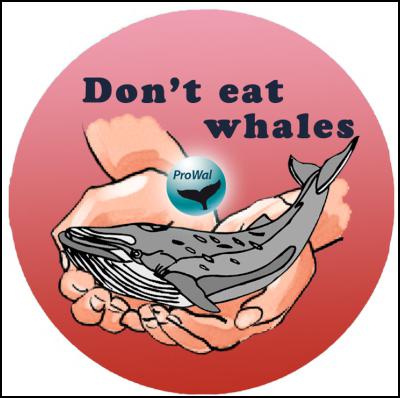
Click for big version.
SAM
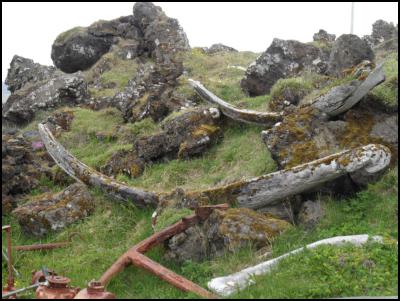
Click for big version.
Zwergwalfleisch1
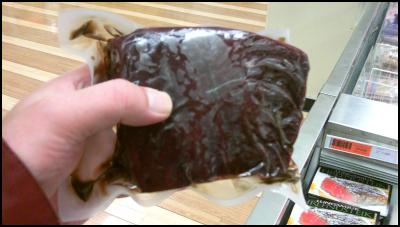
Click for big version.
Zwergwalfleisch2
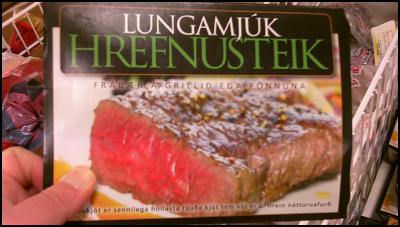
Click for big version.
Meat Minke Whale
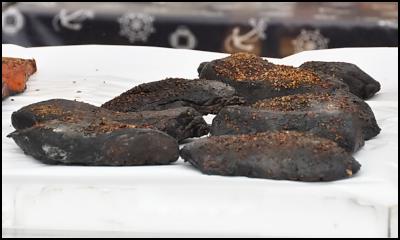
Click for big version.
ENDS


 350.org: Pacific Island Communities Prepare For Australia Elections
350.org: Pacific Island Communities Prepare For Australia Elections The Commonwealth: Millions To Celebrate Commonwealth Day On 10 March 2025
The Commonwealth: Millions To Celebrate Commonwealth Day On 10 March 2025 UN Women: One In Four Countries Report Backlash Against Women’s Rights In 2024
UN Women: One In Four Countries Report Backlash Against Women’s Rights In 2024 Pasifika Medical Association: PMA Group Celebrates Two Years Of Impact With The New Zealand Medical Treatment Scheme
Pasifika Medical Association: PMA Group Celebrates Two Years Of Impact With The New Zealand Medical Treatment Scheme Sydney Writers Festival: Sydney Writers’ Festival Announces First Four International Guests
Sydney Writers Festival: Sydney Writers’ Festival Announces First Four International Guests UN High Commissioner for Human Rights: Arms Transfers Are Not A Human Rights-Free Zone - UN Report
UN High Commissioner for Human Rights: Arms Transfers Are Not A Human Rights-Free Zone - UN Report